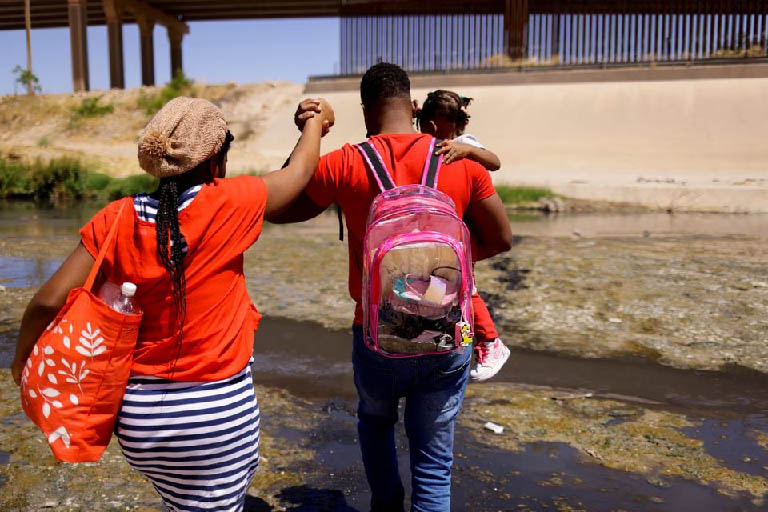(Reuters) – Haitians in the United States are facing enormous pressure to help family and friends under a U.S. migration program announced this month that may help some people escape Haiti’s escalating violence but is also putting strain on the nation’s diaspora.
Giubert St Fort, a South Florida resident from Haiti said he was inundated with calls almost immediately after the Biden administration said on Jan. 5 it was opening a new legal pathway for migrants from four countries, including Haiti who had U.S. sponsors.
“Things are very tense because everyone is expecting a call from someone,” said St Fort, 59, a social worker who is already sponsoring members of his family.
“Many people unfortunately are not in a position to sponsor family members or friends back home, but they are receiving calls nonstop.”
Haitians living in the United States, many of whom are struggling to make ends meet, say they are being sought out by everyone from immediate family members to distant acquaintances or neighbors they haven’t spoken with in years, community advocates and immigration lawyers said.
Desperation to leave has grown in Haiti amid a political crisis and a spike in violence that most recently has included a wave of killings of policemen, triggering protests by angry officers who attacked the residence of interim Prime Minister Ariel Henry.
U.S. President Joe Biden, a Democrat, has struggled with a record number of migrants crossing the U.S.-Mexico border including the arrival of more than 10,000 Haitians to southern Texas in September 2021. Many of asylum-seekers deported back to Haiti or rapidly expelled, despite objections from human rights groups and a U.S. career diplomat who said doing so was “inhumane.”
In response, Biden expanded pandemic-era restrictions put in place by his Republican predecessor former President Donald Trump to rapidly expel migrants from Cuba, Haiti, Nicaragua and Venezuela to Mexico. At the same his administration opened up the possibility for up to 30,000 migrants from those same countries to enter via air per month by applying for humanitarian “parole.”
The parole program is aimed at encouraging migrants to safely travel to the United States instead of braving boats or grueling land journeys through Central America to the border. U.S. officials say illegal crossings by the four nationalities have already dropped dramatically.
A senior administration official said last week that about 1,700 people from Cuba, Haiti and Nicaragua have arrived in the United States through the program in recent weeks, with thousands more approved for travel.
But finding willing sponsors is proving difficult for many Haitians as many immigrants already in the United States are concerned they won’t be able to provide for others with the rising cost of living and soaring rents, advocates and attorneys said.
Tammy Rae, an American lawyer who works in Haiti, gave a radio interview to describe the humanitarian parole program and was later flooded by calls from people seeking a sponsor.
She said her clients have described being expected to sponsor entire extended families and in some cases face threats.
“It’s true that this is a program that will unite families,” said Rae. “I would say it’s also a program that will place undue stress on families and cause family divisions.”
The Department of Homeland Security, which administers the program, did not respond to a request for comment.
Guerline Jozef, executive director of non-profit immigration advocacy group Haitian Bridge Alliance, which is helping Haitians find sponsors, described the dilemma.
“People will say ‘I have more than one cousin I would like to sponsor, I’m only able to sponsor one of them,’” Jozef said. “And that creates a major issue because how do you choose which one to sponsor?” She is also opposed to the expulsions of Haitians and other migrants arriving at the southwest border, many who are seeking U.S. asylum.
Jozef said immigrant advocates have long fought for measures such as humanitarian parole, but said the program should not be attached to systematic deportation or expulsion of immigrants seeking asylum.
“Unfortunately, it is attached to a lot of bad policies. It is being used to literally deter people from seeking protection at the U.S-Mexico border.”

